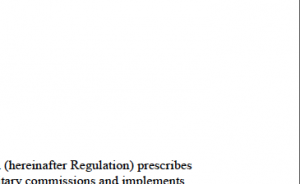The Material Support of Hillary Clinton and Tarek Mehanna
18 USC 2339(A) and 18 USC 2339(B) proscribe the material support of terrorism and designated foreign terrorist organizations. In short, it is the “material support” law:
the term “material support or resources” means any property, tangible or intangible, or service, including currency or monetary instruments or financial securities, financial services, lodging, training, expert advice or assistance, safehouses, false documentation or identification, communications equipment, facilities, weapons, lethal substances, explosives, personnel (1 or more individuals who may be or include oneself), and transportation, except medicine or religious materials;
During oral argument on the now seminal defining case as to the astounding reach of this statute, Holder v. HLP, now Supreme Court Justice Elena Kagan argued, as Solicitor General, that even humanitarian lawyers could be charged and convicted under the wide ranging provisions:
JUSTICE KENNEDY: Do you stick with the argument made below that it’s unlawful to file an amicus brief?
GENERAL KAGAN: Justice Kennedy —
JUSTICE KENNEDY: I think I’m right in saying it that that was the argument below.
GENERAL KAGAN: Yes, I think that would be a service. In other words, not an amicus brief just to make sure that we understand each other. The Petitioners can file amicus briefs in a case that might involve the PKK or the LTTE for themselves, but to the extent that a lawyer drafts an amicus brief for the PKK or for the LTTE, that that’s the amicus party, then that indeed would be prohibited.
Kagan argued for an interpretation so broad that even the filing of an amicus brief would be violative of the material support prohibitions and the Supreme Court so held.
So, surely, the DOJ is going to heed the words and intent of the right honorable Justice Kagan over this report then, right?
The Iraqi government has promised to shutter Camp Ashraf — the home of the Iranian dissident group Mujahedeen e-Khalq (MEK) — by Dec. 31. Now, the United Nations and the State Department are scrambling to move the MEK to another location inside Iraq, which just may be a former U.S. military base.
The saga puts the United Nations and President Barack Obama’s administration in the middle of a struggle between the Iraqi government, a new and fragile ally, and the MEK, a persecuted group that is also on the State Department’s list of foreign terrorist organizations.
The Marxist-Islamist group, which was formed in 1965, was used by Saddam Hussein to attack the Iranian government during the Iran-Iraq war of the 1980s, and has been implicated in the deaths of U.S. military personnel and civilians. The new Iraqi government has been trying to evict them from Camp Ashraf since the United States toppled Saddam in 2003. The U.S. military guarded the outside of the camp until handing over external security to the Iraqis in 2009. The Iraqi Army has since tried twice to enter Camp Ashraf, resulting in bloody clashes with the MEK both times. (emphasis added)
Well, no, there will be no prosecution for aiding and abetting these terrorists. Now, in all Read more →




